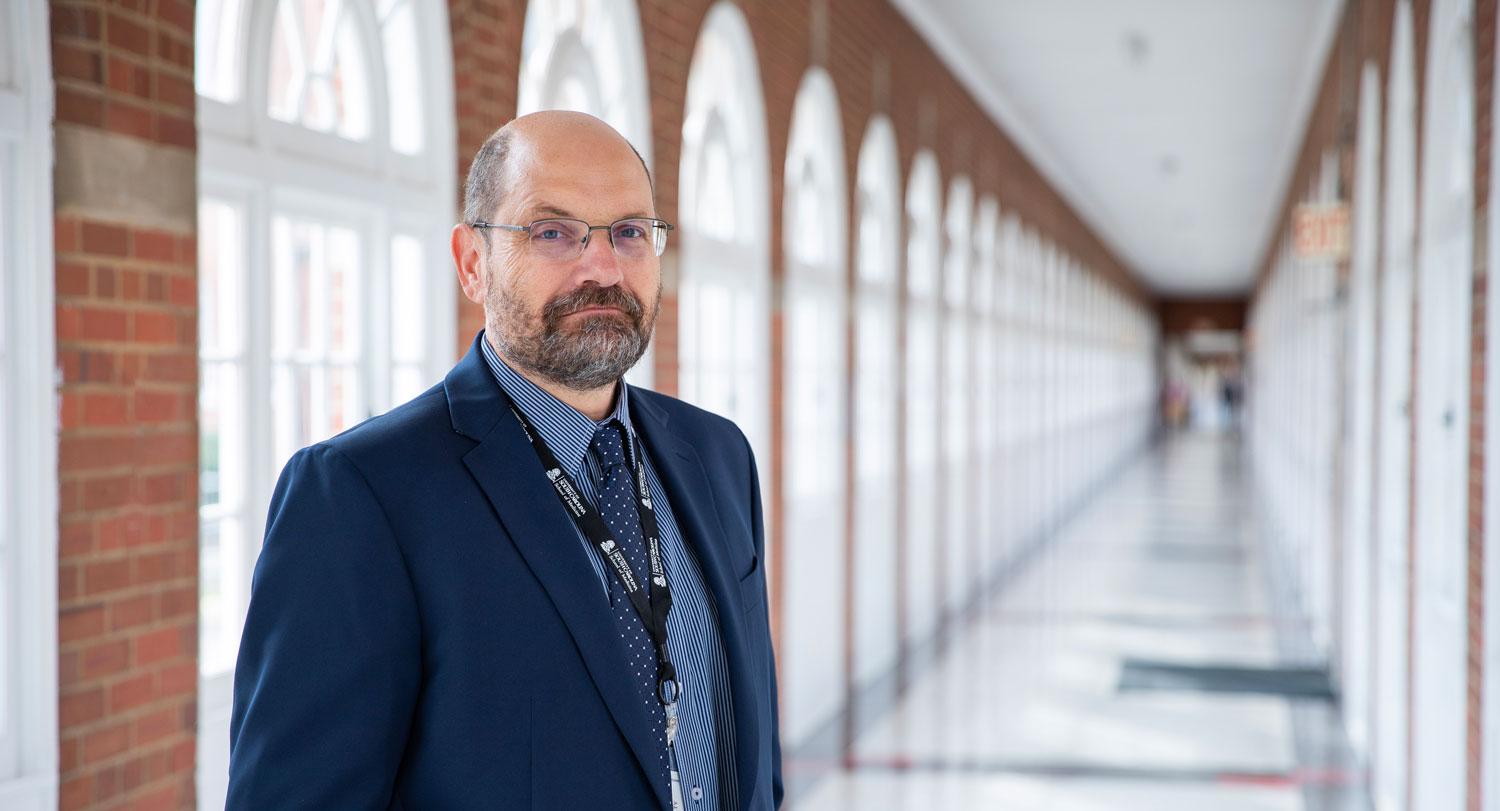
Paul Toriello leads innovative approaches to graduate-level education at the University of South Carolina, preparing the next generation of professionals for the evolving field of health care. He brings nearly two decades of experience to his role as assistant dean of clinical graduate programs in the School of Medicine Columbia and as a clinical professor in the school’s Department of Neuropsychiatry and Behavioral Science.
Toriello, who joined USC in 2023, aims to utilize technology to revolutionize mental health care services and the student learning experience.
How would you describe your area of expertise?
My background is in clinical mental health counseling, with a heavy emphasis on addiction counseling. I've worked in professional counseling and in higher education for almost 30 years, training clinical mental health, addictions and rehabilitation counselors. I’m excited to bring my experience to the University of South Carolina.
What made you choose USC?
After about 17 years at East Carolina University, I began looking for a position where I could combine my experience with my strengths. The School of Medicine Columbia at USC caught my attention with its blend of tradition and forward thinking.
What drew your focus toward mental health and addiction counseling?
What got me interested is largely personal experience. I'm a person who has struggled with addiction, but I'm in recovery and have been for a while. I feel so blessed and grateful for that, but even since then I've faced anxiety and depression. I'm not necessarily proud of it, but I'm not ashamed of it either because I try to fight back against the stigma.
What trends in the future of health care should students know about?
To anyone who wants to pursue mental health counseling or other positions in health care find ways to infuse technology into practice — whether that means an artificial intelligence counselor interface to handle patient issues quickly and more efficiently or an app that the patient can use between sessions.
We're understanding more and more about the brain and body connection, the flow of our emotions, what causes them and how to regulate them with technology. I'm wearing a smart watch, and one day this is going to help regulate my mental health. Soon it will say “Paul, you need to relax a little bit" or “You're getting a bit anxious.”
Developments in AI are going to be the next revolution of health care. I'm excited to witness how it can be used in higher education, medicine and counseling. We’ve barely scratched the surface.
How has your background contributed to enhancing graduate student education and experience at USC?
There's new information uncovered daily on how we as educators of the health care professions, as trainers of our workforce, can better prepare students to become the best caregivers they can be. I strive to innovate as often as possible, and I’ve failed more times than I've succeeded, but that's part of the process. How can we improve without taking risks and failing? Without it, we'll never find those successful iterations of how we train and teach or how we implement a treatment.
How do you approach mentoring?
Relationships are key. I have had wonderful, gracious, stern mentors who gave me supportive feedback, but didn’t hesitate to say, “Paul, don't do it that way. That's wrong, you need to do this instead.” I try to meet that standard of advice with the faculty I mentor. I aim to invest in them and what they see for their future and their students.
What are you looking to accomplish next?
The programs I oversee are at different states developmentally, so I aim to be part of their respective advancement.
For the clinical mental health program, we’re building a small, student-operated, faculty-directed clinic where students can get hands-on experience as they're being trained. Another goal is establishing a clinic where folks without insurance or a whole lot of money can receive quality treatment.
Simulation is a vital part of training health providers. The goal is to make the School of Medicine Columbia a world leader in simulation expertise — for people to want to come here to experience our simulation lab and take what we’ve discovered and share that knowledge with their own institutions.
Other programs like physician assistants or nurse anesthesia are very highly developed. They need tweaks here and there for improvement. Implementing new technology is a great place to start. I am always curious how we can be leaders of innovation not just followers.